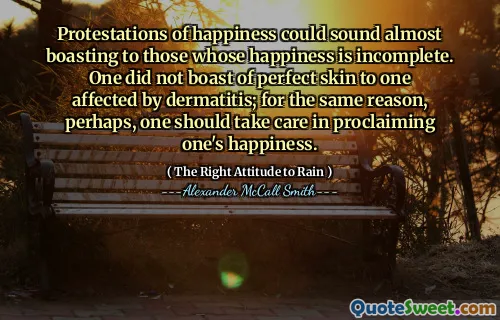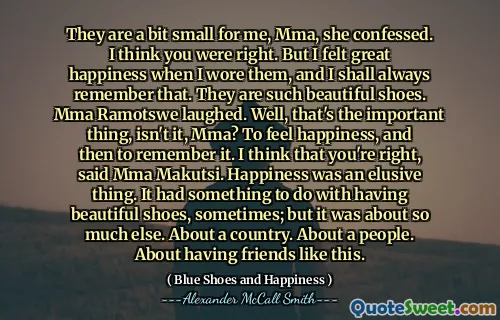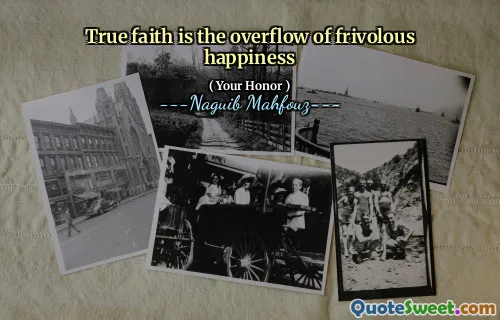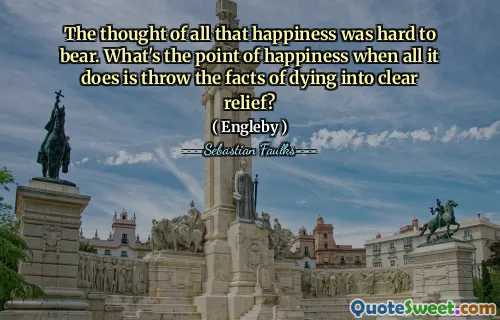
I will be glad to go. There is no poetry here. It is as I have always set forth: joy comes of its own free will
---it cannot be belabored.---
This quote offers a profound insight into the nature of happiness and the human pursuit of joy. The speaker seems to acknowledge a sense of readiness or acceptance with the phrase "I will be glad to go," perhaps signifying a willingness to embrace change or departure. The statement "There is no poetry here" suggests an environment bereft of embellishment or superficial beauty—possibly a stark reality or an unadorned truth. Yet, despite this lack of poetic allure, the speaker emphasizes that joy exists independently of external beauty or artistry.
The line "joy comes of its own free will" is particularly powerful. It underscores the idea that true happiness is spontaneous and intangible; it cannot be forced or manufactured. Instead, joy manifests naturally when conditions align, or perhaps simply when one opens oneself to its presence. This perspective invites a reflection on the importance of internal disposition over external circumstances. It suggests that happiness isn't reliant on external adornments or superficial embellishments but arises organically from within.
From a broader perspective, this quote reminds us of the autonomy of joy and its unfettered nature. Often, society associates happiness with achievements, material possessions, or aesthetic pleasures—elements that can be transient or superficial. However, what this quote hints at is a more authentic source of joy rooted in acceptance, freedom, and inner peace. The idea that joy arrives by its own volition encourages individuals to cultivate inner tranquility and to be receptive to life’s spontaneous moments of happiness. It is a gentle reminder to not force or chase after fleeting delights but to trust in the natural ebb and flow of life’s emotional landscape.
Ultimately, this quote advocates for a contented outlook—one that recognizes the beauty in simplicity and values the unbidden, organic emergence of joy as a testament to the innate resilience and richness of the human spirit.











